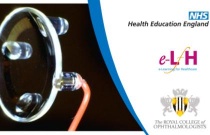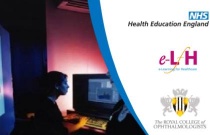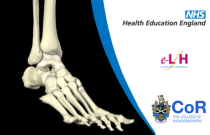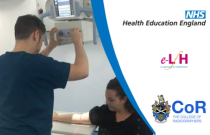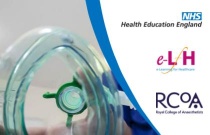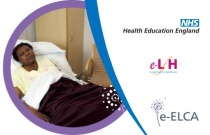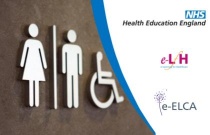Full-field Electroretinography: Part 2
Anthony G. Robson and Antonio Calcagni
This session details how to interpret the normal and abnormal full-field electroretinogram (ERG). It also describes the main indications for performing an ERG with some illustrative examples.
Pattern Electroretinography
Lawrence Brown
This session covers the underlying physiological changes measured by pattern electroretinography (PERG), clinical indications for performing the test, how it is carried out and the interpretation of a PERG report.
Flash Visual Evoked Potentials
Ruth Hamilton
This session covers the underlying physiological changes measured by flash visual evoked potentials (Flash VEP), clinical indications for performing the test, how it is carried out and the interpretation of a Flash VEP report.
EXAM TEST 3
Mr WCEA Administrator
Course Description* Please add a course description with a minimum of 20 characters.
Assessment of Physical and Cognitive Deterioration in Function
Doiminic Ó Brannagáin
This session provides a framework for the assessment of physical and cognitive deterioration in function in end-of-life care patients.
Individual Preferences and Cultural Influences on Symptom Management
Carina Saxby
This session discusses the role of cultural influences and patients’ individual preferences on symptom management and care plans.
Full-field Electroretinography: Part 1
Anthony G. Robson and Antonio Calcagni
This session describes the full field electroretinography (ff-ERG) procedure and principles and a normal set of ff-ERG results. It describes the physiological significance of the main ERG components and outlines how responses are measured and interpreted.
Multifocal Electroretinogram (mfERG)
Sinead Walker
This session covers the multifocal electroretinogram (mfERG) procedure, the underlying physiological changes measured and the interpretation of normal and abnormal mfERG reports. How mfERG results may relate to complementary diagnostic techniques such as imaging will also be covered.
EXAM TEST 1
Mr WCEA Administrator
Course Description* Please add a course description with a minimum of 20 characters.
Image Interpretation of the Ankle: Session 1
Nick Woznitza
This session will look at injuries related to the ankle. It will focus on identifying anatomy demonstrated on both diagrams and radiographs, and offer examples of radiographic technique. Mechanisms of injury (MOI) will be discussed to develop a knowledge base in clinical presentations.
Image Interpretation - Adult Skeleton (X-ray): Ankle - Session 3
Nick Woznitza
A self-assessment quiz based on Image Interpretation - Adult Skeleton (X-ray): Ankle - Sessions 1 and 2.
Image Interpretation - Adult Skeleton (X-ray): Elbow - Session 2
Sarah Gallimore
This session will describe common fractures, dislocations, pathologies and normal variants found in the elbow joint. These will be illustrated using radiographic examples.
Halogenated Volatile Agents and Unwanted Effects of Volatile Agents
Louise Potter
This session provides an introduction to the volatile anaesthetic agents explaining the important pharmacokinetic properties with particular attention to gaining understanding and an appreciation of the relevance of the novel concepts of MAC, oil:gas coefficients and blood:gas solubility.
Agitation and Restlessness in the Dying Phase
Alison Coackley
This session provides a framework for assessing and managing agitation and restlessness in the dying phase, an experience which can be highly distressing for both patients and families. Poor management of this symptom is a frequent cause for admission and problems in bereavement.
Assessment of Constipation
Joanne Droney, Anna-Marie Stevens
This session gives a framework of how to assess constipation as an essential first step in appropriate management of constipation. This session was reviewed by Rachel Lee and last updated in May 2023.
Taxonomy test for category
Mr WCEA Administrator
0.50 Hours
Course Description* Please add a course description with a minimum of 20 characters.
Managing Contraceptive Side-effects
Ruth Bailey
This session will identify the side-effects associated with the use of hormonal contraceptives and offer guidance on how to manage these side-effects to encourage concordance with the method of choice.
Truth and Consequences of Intravenous Drug Addiction
Gavin Bart, MD, PhD
0.25 Hours
Despite efforts to increase awareness of the serious, even deadly, consequences of intravenous drug use, the numbers of those addicted continue to increase at an alarming rate. This session explores medical consequences associated with intravenous drug addiction, as well as its impact on society and the health care system. *N....
Understanding Vasoactive Medications and Effective Titration
John Allen, PharmD, BCPS
1.00 Hours
Administration and titration of vasoactive medications require careful monitoring of the patient's hemodynamic status against the intended goals for therapy. Nurses must recognize the indications for vasoactive therapy and understand specific vasopressor action on the alpha-1, beta-1, beta-2, and dopamine receptors. This session....
The Role of the Pharmacist in Home Infusion Therapy
Rebekah Hanson, PharmD, BCPS
0.75 Hours
Pharmacists play an integral role in supporting safe and effective care for patients receiving infusion therapy in the home environment. Home infusion nurses partner with pharmacists who go beyond verification of dosage, indication, route, and method of administration. As a team, they work to ensure safety and efficacy of treatm....
Supporting Youth Transitioning Out of Foster Care - Education Programs
Industry Specialist
1.00 Hours
The Urban Institute and Chapin Hall developed a typology to categorize the array of existing independent living programs for youth transitioning out of foster care and into adulthood. This CEU course focuses on the category of programs that aim to improve educational outcomes. It explains why these programs are important, sugg....






